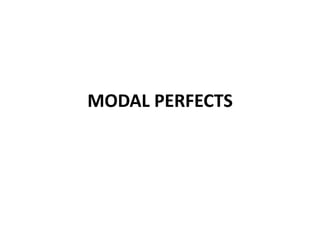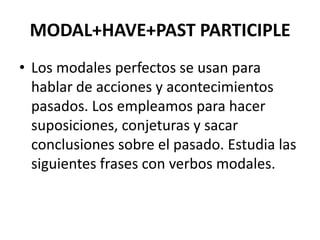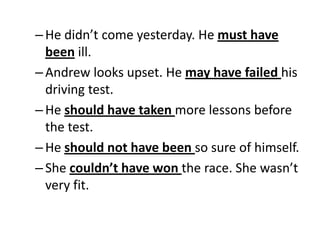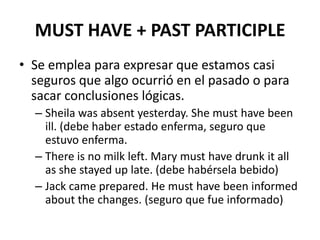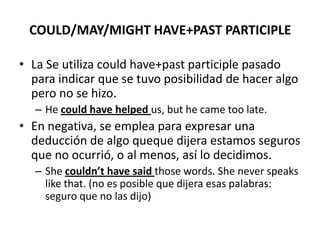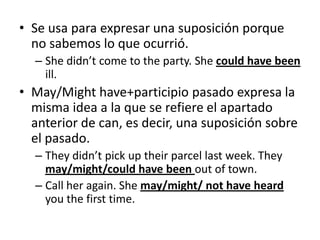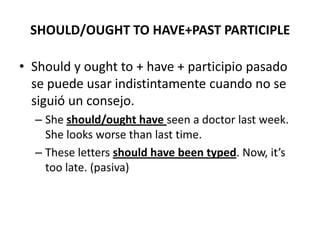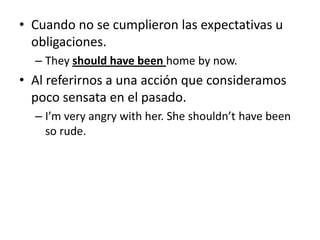This document discusses modal perfect tenses in Spanish, which are used to make assumptions, conjectures, and draw conclusions about the past. It explains that must have expresses certainty about something that occurred in the past or logical conclusions. Could/may/might have express possibility but uncertainty, while should/ought to have refer to unfulfilled advice, expectations, or obligations or actions seen as ill-advised in hindsight. Examples are provided to illustrate the use of each modal perfect.
